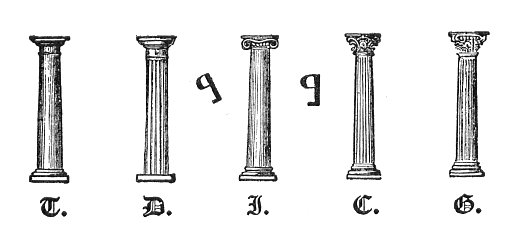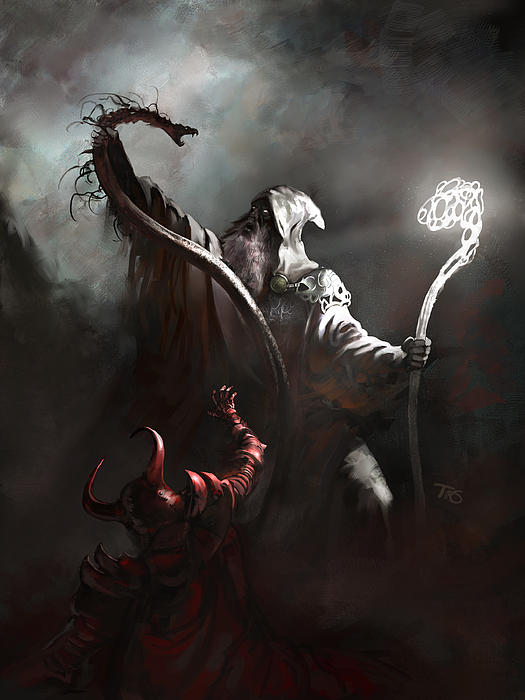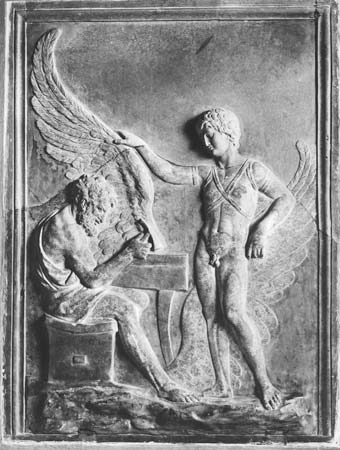Many prominent Freemasonic historians such as Cagliostro, Thomas Paine, and Manly P. Hall trace the long history of the Craft back to Ancient Egypt well before the modern version of the History of Masonry was allegedly recreated in England back in the early 1700’s. Like these great historians, I have also found the original Freemasons had their origins in Ancient Egypt.
In studying this lost history, I have discovered what appears to be the first known evidence and physical proof of what we can call “The First Masonic Grand Master of the Deep State.” These Masonic revelations I discovered in the tomb of a very important Egyptian noble and official of the 18th dynasty who served as “Governor of the Town” of Thebes and Vizier for Pharaoh’s Thutmosis III and Amenhotep II.
His name is Rekhmire.
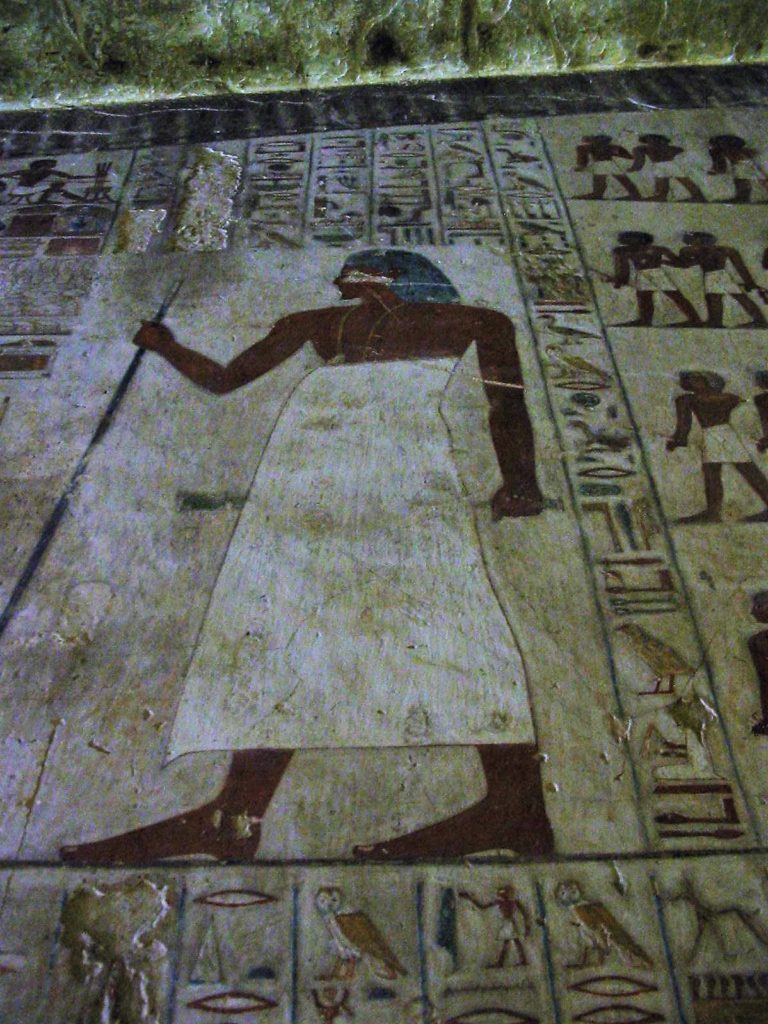
The image above shows us Rekhmire’s Masonic symbols and the way he faces, the position of his feet and also what he holds in his hands are done purposely to indicate his “royal authority” and also the subjects AKA slaves who were all under his magical sway. He advances with his right foot forward as he holds the Shepards cane/crook in his right hand to control the slaves and in his left hand is the scepter to beat any unruly slaves/masons under the Kings sway that runs behind his body.
In ancient Egypt, Rekhmire held the royal title of Vizier which is the highest-ranking government official, appointed by the pharaoh and acting as his chancellor (chief administrator; Egyptian: taty).
Vizier was a term for the chief administrators of Upper and Lower Egypt during the times when the administration of the country was headed by two officials with the vizier for the North (Lower Egypt, the Nile Delta), and a vizier for the South (Upper Egypt).
As Vizier and Chancellor, Rekhmire directed all the concerns of government with Egypt’s slaves and wealth through what is known as “The White House” and “The Red House.” In Ancient Egypt, their treasury was called the White House (per-hedj) in Upper Egypt and the Red house (per-desher) in Lower Egypt.
The term vizier was carried on by various world ruling factions such as in recent times with the Turks. In the Ottoman Empire, the Grand Vizier (Turkish: Sadrazam) was the prime minister of the Ottoman sultan, with absolute power of attorney and dismissible only by the sultan himself.
In the U.S., we carry this Ancient Egyptian tradition with our own White House as the head of political affairs as the official home to the Masonic PONTUS and his Deep State CIA Viziers.

But now we know that the initial concept of the White House was not founded by Anglo-Saxon Freemasons such as our first President, George Washington, but by their extremely powerful predecessors, the Freemasons of yesteryear whom they honor – The Ancient Gnostic Priesthood of Amon.
As I have written before, the City of Thebes was said to be founded by the founder of the Phoenicians, Prince Cadmus who is also credited with bringing letters to Greece and the creation of a special breed of warriors he had sown via dragons teeth into the ground. An extremely savage group of pedophile warriors raised from birth to kill that we know as the Spartans.
Masonic Proof
It is exactly here in the tomb of Rekhmire where we also uncover a veritable treasure trove of Masonic history, symbols, images, and texts that are very specific to his roles regarding his office and nobility.
The first evidence of organized Freemasonry I have found is in the tomb of Rekhmire in what is known as “The Craftsmen of Amun.” It is here where we find the first known representations of the workmen/masons in what appears to be an organized society.
We can call this the Masonic / Gnostic Brotherhood of Amon Ra (Amun Ra) who may very well be the first Gnostics to come from the East. Their city, Theba or Thebes, the City of the Ark in the New Kingdom was their capital in Egypt when they had held power. The God they had worshiped there was Amon (Amun, Amnion, Amen).
As it is said of Amon who we know in Christianity as Amen by one of their Gnostic descendants, Saint John in Revelation 7:12; “Amen, blessing and glory and wisdom and thanksgiving and honor and power and might, be to our God forever and ever Amen.”
We know from these texts that Rekhmire was placed in charge of all Egypt’s foreign lands which included all the slaves, laws, religion, commerce, arts, taxes, collections, courts and judgments. This includes who we call today Masons and they called back then in texts as “craftsmen of the temple of Amun.”
In one of the depictions and texts of Grand Master Rekhmire, it states that he is “Inspecting all craftsmen of the temple of Amun […] and giving every man instructions for his task (to make) all types of products.”
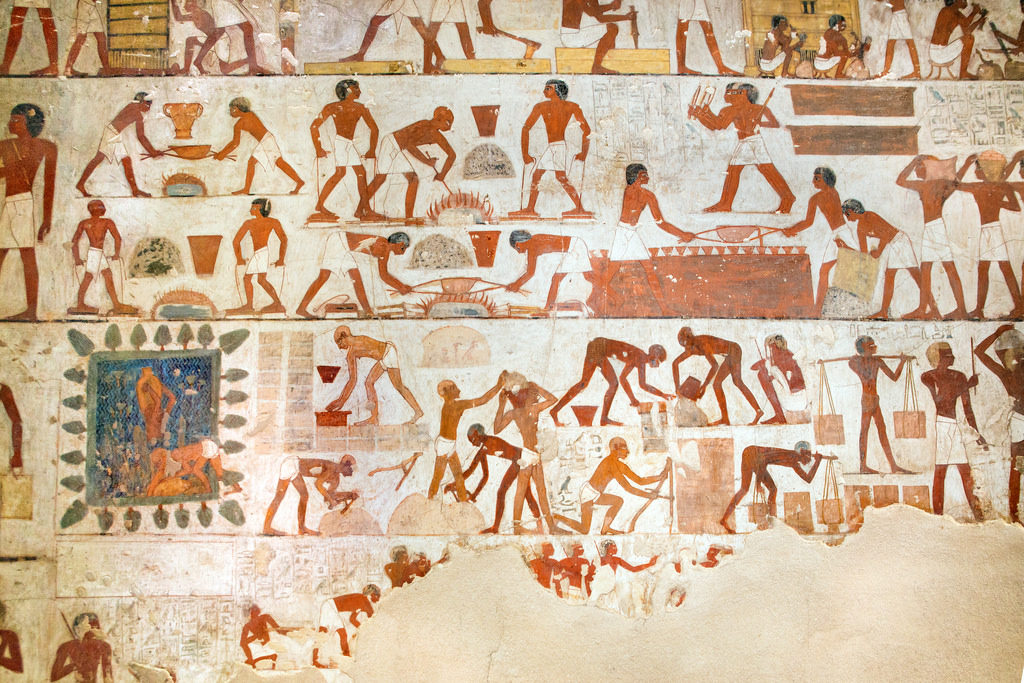
Rekhmire is also described as “one who sets the rules for priests and guides wab-priests in their functions”.
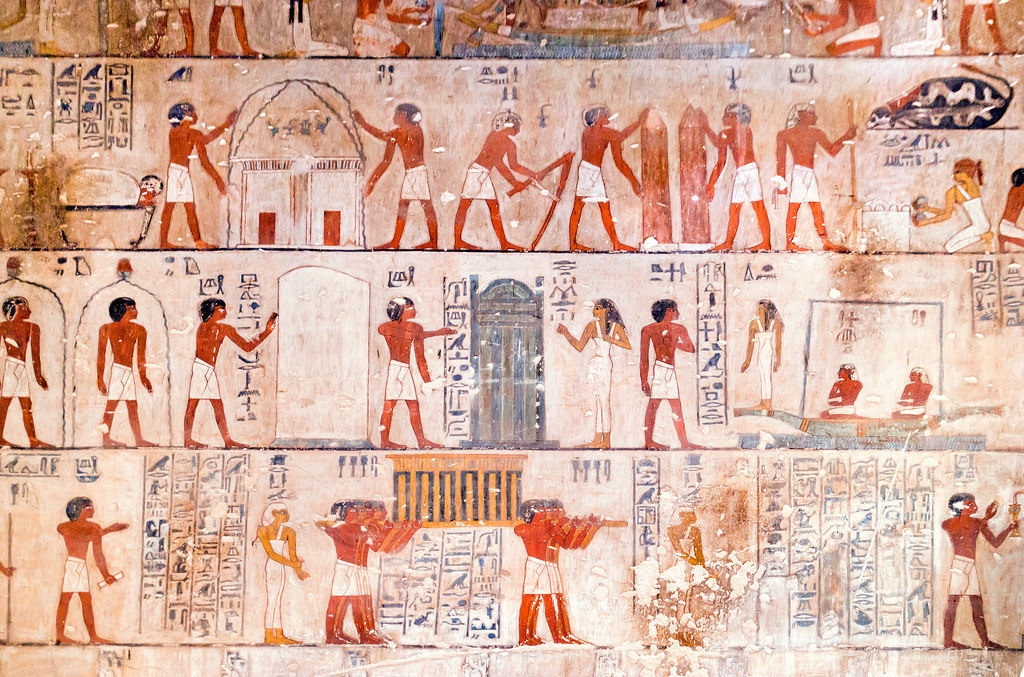
As the power grew for the Ancient Deep State and Rekhmire, they had amassed superior power that was equal to that of some pharaohs which made them the true ‘protectors of the king’ and even ‘kingmakers’ like we see today.
These original protectors of the king, I have traced back to the Ancient Priesthood from Crete known by various names such as the Telchnines, Curetes, and Corbanytes who in mythology were placed in charge of the infant king Zeus and hid him in a cave in Mount Ida. I will explain these connections in a future article.
It appears that being the Pharaoh’s Grand Master had taken its toll on Rekhmire.
For example, in a special text called the “Duties of the Vizier,” we find that even though Rekhmire is a noble and has one of the most important positions in the Kingdom, his jobs and life is far from being ‘Cush.’ Rekhmire seems overwhelmed with the responsibilities of the Deep State when he says;
“Behold, as for the Vizierate, see, it’s really not a sweet thing, see, it’s a thing bitter as gall.”
A speech delivered by Tuthmosis III to his newly appointed Vizier (Grand Master) shows us just how tough the job must have been for Rekhmire to govern the Deep State of his vast empire.
Introduction: “Instructions communicated to the Vizier Rekhmire Bringing the Council members into the audience hall of the palace, life, integrity, health. Pharaoh presents the newly appointed Vizier Rekhmire.”
The king’s speech: “And His Majesty said to him.. Look now at the edifice of the Vizierate Ensure vigilance about what happens there, See, it is the prop of the whole country. See, as to the Vizierate, see, it is not really a sweet thing, See, it’s a thing bitter as gall.
See, this is copper around the gold of the estate of his Lord. Look, it is someone who does not bow his head before the Magistrates of the Council, and does not create supporters or accept them (as partisans). See, if a man is inside the house of his master (= if it is according to the rule) it is that he must act appropriately (for him) and it is not for another to do as he must do the same.
See, it was after he suffered […] from the office […] that a complainant comes from Upper Egypt and Lower Egypt (in short) the entire country, so you must watch to do all things according to the law, to do everything as it should (literally everything in accordance with its justice) in [? making (sure)] that justice is done for him.
See, for a magistrate who appears in public, that in all he does (openly) is as water and wind can report. See, what he did is known. Indeed (literally: it is in truth), If it is something he does in his conduct and that it is not revealed from the mouth of the head of current affairs, then we (the Pharaoh) will know from the mouth of one he has given judgment to, when he says that to the person being responsible for the business, stating, “This is not my decision to support the case (literally: my voice).
The complainant will send […] or to the (higher) magistrate. All the more one cannot ignore what he did. See, this is a protection for the magistrate to have acted according to the rule, doing what was laid down. (When) The complainant and the one judged […] “I have not been done justice.”
See, this is the proverb that is in the Book of Memphis, namely: ‘To the lord, merciful and, renowned Vizier!’ Beware of what was said of the vizier Khety. That is for the benefit of other people he impoverished people around him for fear of what might be said against him […]
That one of them might complain that a judgment exists that he thought applied to his case, he persevered to the impoverishment, but it was an excess of justice […] It is an abomination to the god to be biased (literally ‘overlook one side’). It is a Precept that you shall do the same, so that you shall consider (equally) that (person) which you know to whom you do not know, who is close to you (equally) as one who is away from you.
As for the magistrate who does similar things to these, he will become successful here in his Office. Do not treat the complainant with negligence before you pay attention to his words. If there is a complainant who come to complain to you (in person), do not dismisses what he says as a thing already declared. You may dismiss him only after you have made sure that he understands why you rejected his (complaint).
See, it is said, ‘a complainant would rather that one pays attention to his speech than to hear that (judgment) for which he had come. ” Do not show your anger towards a man unjustly. Show your anger about that for which one ought to show wrath. Make yourself dreaded that we have to fear you (because) you are a magistrate, it is the magistrate who is feared.
See, this is the prestige of the magistrate, to dispense justice. (But) behold, if a man is feared a million times, there is something wrong with him in people’s opinions. They will not say of him: ‘He is a man’. See […] a judge who tells a falsehood, but it is on his own merit that he should get on. See, you will succeed because you’ll take care to do justice in this office. See, It is by the decisions of the Vizier we desire to accomplish justice. So, see, that’s been his rigorous goal since (the time of) God.
See, this is said about the great scribe of the Vizier that ‘A Scribe of Ma’at’, is said of him. And as for the building in which you heard cases, there is a lobby within under […] judgment […] “As for the one who provides (?) Justice to all people it is the Vizier. See, a man remains in his office when he does things according to the rules given to it. Good fortune belongs to a man, when he does as it is laid out for him. Do not let a case drag out in which the law concerned is known.
And, see, as regards the bold (man), it is that the master loves the fearful more than the daring. Thus you will act according to the directions that were given to you. Behold, it is given to […] and pay attention to these regions in proceeding to their certification. If you’re planning to inspect (them), you will send, as inspectors, district supervisors, the chief of the police and their officers. If there is someone who can inspect on your behalf, you delegate it to him, so you will act like what is ordained for you.”

Moe is the founder of GnosticWarrior.com. He is a father, husband, author, martial arts black belt, and an expert in Gnosticism, the occult, and esotericism.


